Editorial Team
Volcanica is comprised of a team of volunteers who are all enthusiastic about making science open for everybody. Jump to the Editorial comittee, the wider Editorial board or our technical team.
To contact our outreach team, email outreach@jvolcanica.org. For general editorial queries contact editor@jvolcanica.org. For technical queries contact farquharson@jvolcanica.org or wadsworth@jvolcanica.org.
Editorial committee
The editorial committee is an elective subgroup of the Editorial board, responsible for journal oversight and management.

Expertise: Experimental volcanology; Permeability of volcanic and geothermal systems; Rock deformation; Remote sensing
I am particularly interested in fluid flow in volcanic media from the lab- to the edifice-scale, as well as the mechanical deformation of volcanic edifices and the materials that they are constructed from. I am also interested in multidisciplinary research that uses field measurements to inform lab- and modelling-based studies, and vice versa.

Expertise: Experimental volcanology; Physics of magma; Magma permeability; Magma physical properties
I am particularly interested in the physics of volcanic fracturing and re-welding phenomena, the behaviour of droplets of volcanic liquids, the kinetics of permeability evolution in magma and silicate melt properties.

Expertise: Pyroclastic density currents; Lahars; Volcanic stratigraphy; Seamounts
I am particularly interested in understanding hazardous volcanic flows, magmatic processes, and the risks faced by communities from volcanic eruptions.

Expertise: Volcanology; Rock/magma physical properties; Rock/magma deformation; Rheology
I use experimental techniques including rock and magma deformation under in situ pressure and temperature conditions to understand the structural evolution of earth materials. The majority of my research focuses on the evolution of permeability development and modification in earth systems, with particular emphasis on volcanic and geothermal contexts.

Expertise: Experimental volcanology; Mechanical behaviour and failure modes; Permeability; Physical properties
I am particularly interested in the physical properties, mechanical behaviour, and failure modes of volcanic materials, and how deformation in the different regimes (brittle and ductile) and hydrothermal alteration affects their physical, mechanical, and transport properties. I’m also keenly interested in the use of volcanic materials in construction.

Affiliation: Laboratoire Magmas et Volcans, Université Clermont Auvergne (France)
Expertise: Lava flows; Rheology; Physical Volcanology
Lava rheology is the heart of my research. I am particularly interested in the relationship and interdependence of magma cooling, crystallization, rheology, emplacement behavior and morphology of lava flows.

Affiliation: Université catholique de Louvain (Belgium)
Expertise: Environmental effects of volcanic ash and gas emissions; Volcanic ash; Volcanic hydrothermal systems; Water-rock interaction
The effects of volcanic eruptions on the environment and the biogeochemical cycles of key elements such as carbon, iron, silicon and sulphur captivate me. My research involves field-based, experimental and modelling approaches to understand better the various factors and processes that dictate the short- and long-term reactivity and impacts of volcanic ash and gas emissions in the atmosphere, hydrosphere, biosphere ad pedosphere. I am also interested in water-rock interactions in hydrothermally-active volcanic regions.

Affiliation: University of Canterbury (New Zealand)
Expertise: Physical volcanology experiments and fieldwork; Integrating of monitoring data with eruption observation; Calderas and their magma chambers; Volcano outreach and education
My experience is in exploring volcanic processes and integrating field mapping, textural analysis, geochemical data, monitoring data, with experimental data. I am particularly interested in processes related to ballistic hazards, shallow magma plumbing, lava domes, earthquake triggering, volcanic rock mechanics and permeability, calderas and resurgence, volatiles in glass, bubble growth and collapse, volcanological controls on fluid pathways related to geothermal energy, lava flow rheology, and field education and virtual fieldtrips.
Editorial board
The editorial board members handle individual manuscripts, facilitating the peer review process and ultimately determining whether articles are of appropriate scope and quality to be published in Volcanica.
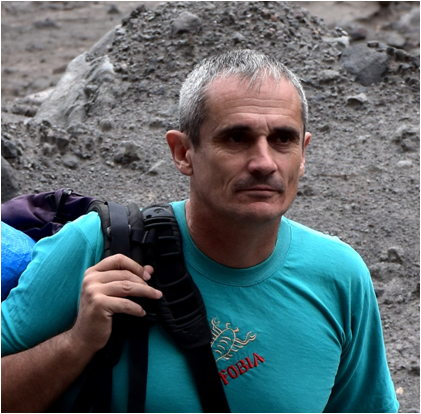
Affiliation: Universidad de Colima (Mexico)
Expertise: Physical volcanology; Volcano monitoring; Hazard and risk evaluation; Eruption forecasting
My main interests pertain to the interpretation of monitoring data by the conception of models to explain the behaviour of magma in the conduit through the critical processes of degassing, crystallization and subsequent variations in the rheology, possibly leading to fragmentation. Of particular interest is modelling the transition between eruption styles, to improve the capacity to forecast the evolution of an eruption. I am particularly interested in the behaviour of pyroclastic density currents, dome and silicic flow emplacement and the evaluation of risk though hazard mapping. Also the integration of petrological with geophysical time series in volcano monitoring.

Affiliation: Lancaster University (UK)
Expertise: Lava emplacement; SfM-photogrammetry; Magma fluid dynamics; Experimental volcanology
I am interested in a range of physical volcanic processes, with particular emphasis on using analogue laboratory experiments and observing active systems with techniques such as SfM-photogrammetry.
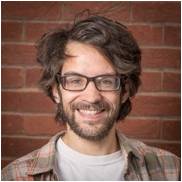
Affiliation: Cornell University (USA)
Expertise: Volcanic ash characterization; Experimental volcanology; Magma fragmentation; Brittle mechanics of magma; Image analysis
My research interests are in magma fracture and fragmentation, the properties of volcanic ash particles, the mechanical behaviour of viscous magmas, and integrating geophysical and experimental datasets.

Affiliation: Ludwig-Maximilians-Universität, Munich (Germany)
Expertise: Experimental volcanology; Eruption forecasting; Physics of magma; Magma physical properties
My main research area surrounds the topic of eruption forecasting using laboratory and numerical approaches, but I am also interested in understanding volcanic and magmatic processes further mainly through modelling.

Affiliation: University of Missouri–Kansas City (US)
Expertise: Physical volcanology; Phreatomagmatism; Volcanic stratigraphy; Remote sensing; Experimental volcanology
My research focuses on the interaction between volcanoes and water including phreatomagmatic processes, non-explosive magma sediment interactions, and lahars. I study these processes on Earth and Mars at microscopic and landscape scales.

Affiliation: Ludwig-Maximilians-Universität, Munich (Germany)
Expertise: Experimental volcanology; Field volcanology; Magma fragmentation; Volcanic ash
I am particularly interested in magma fragmentation, transport and emplacement processes during pyroclastic density currents, the generation of volcanic ash and its variable impact.

Affiliation: University of Bristol (UK)
Expertise: Volcanic petrology; Risk communication; Volcanic disaster risk reduction; Secondary volcanic activity
I am particularly interested in the development of interdisciplinary approaches in volcanology. My goal is to use these to better understand volcanic behaviour and its impact, and to improve the integration of this type of scientific knowledge into disaster risk reduction processes. Over the years I have used petrology, rainfall, mapping, social science, films and latterly history and story-telling as tools to help me reach these goals.

Affiliation: King’s College London (UK)
Expertise: Social volcanology; Science and policy; Interdisciplinary disaster risk reduction; Knowledge and decision-making
My work focuses on the use of scientific knowledge in decision-making for environmental risk assessment, and on the social and cultural dynamics of knowledge and risk. I am particularly interested in interdisciplinary approaches to complex problems around volcanic risk reduction.
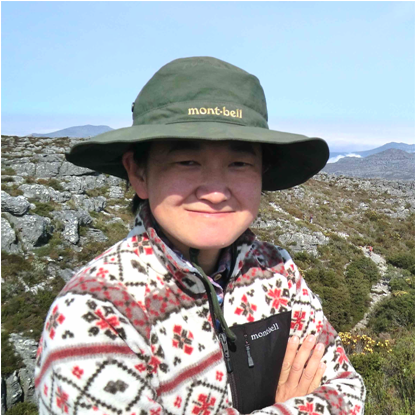
Affiliation: Research Institute for Natural Hazards and Disaster Recovery, Niigata University (Japan)
Expertise: Volcanic sedimentology and stratigraphy; Lahars; Tephra studies
My research focuses on modern and ancient volcanic sedimentary systems and sequences with multidisciplinary views based on sedimentology, volcanology and geomorphology. I am particularly interested in hydrological volcanic sediment transportation and deposition including lahars under fluvial and subaqueous environments and impacts of these phenomena on environment during eruptions and even during post-eruptive periods.

Affiliation: Department of Geography, University of Cambridge (UK)
Expertise: Social volcanology; Risk perception; Disaster risk reduction; Crisis management
My work focuses on understanding the preparedness and behaviours of people facing volcano and tsunami events. It comes along with assessing the social, institutional, and territorial vulnerabilities, and proposing tools in order to raise awareness in the face of natural hazards and to improve the evacuation and the crisis management capabilities.
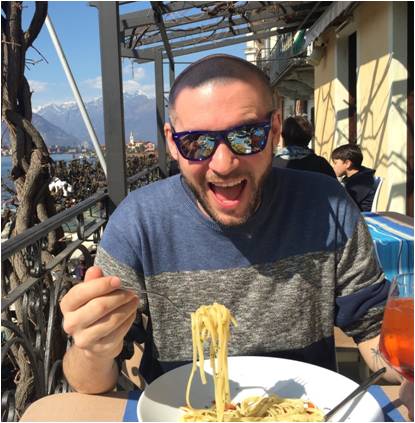
Affiliation: The University of St Andrews (UK)
Expertise: Stable isotope geochemistry; Volatile element geochemistry; Planetary magmatism
My research is underpinned by a strong desire to understand the origin and evolution of atmospheres, which means I need to understand the nature of the volatile elements (primarily C-N-Noble gases) in the interior of planets. I am also passionate to ascertain how volatile elements behave during accretion, differentiation, and plate-tectonic cycling into, and out of, the mantle.

Affiliation: Jacobs at NASA Johnson Space Center (US)
Expertise: Experimental petrology; Melt inclusions; Thermodynamic modelling; Volatiles in gases and melts
My research combines high pressure-temperature experiments, field measurements of volcanic gases, analytical petrology, and computational thermodynamic modeling with the goal of quantifying the complex interconnectivity between geochemical reservoirs on Earth and in extraterrestrial systems.

Affiliation: Universidad Nacional (Costa Rica)
Expertise: Volcanic gas emissions; Geochemistry of volcano-hydrothermal systems; Eruption forecasting; Phreatic eruptions
My primary research interest is using real-time measurements of volcanic gas emissions to forecast volcanic eruptions and investigate volcanic processes. I am also interested in tectonic-scale element cycling, volatile sources and fractionation processes in hydrothermal systems, oxidation states of magmatic systems, stable isotopes, volatiles in melts, magma evolution, integration of multi-disciplinary records of eruptions, and using drones to monitor volcanoes.

Affiliation: University of Edinburgh (UK)
Expertise: Volcano Education Research; STEM and Communication Education Research; Risk and Crisis Communication; Volcanic Petrology
I am interested in how we learn, teach and communicate about volcanoes. My goal is to support knowledge transfer within the education and volcanology communities through evidence-based research and pedagogies. In the past, I’ve researched field trips, videogames, role-play, training exercises, communication interventions, workshop design, participatory research design, with a recent focus on learner and professional identities and bringing professional practice into the classroom.
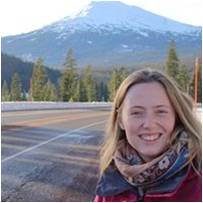
Affiliation: University of Leeds (UK)
Expertise: Volcano Remote Sensing; Active deformation; Volcanic topography; InSAR
I investigate different aspects of volcanic activity using satellite remote sensing. I am interested in the physical processes that control the character of volcanic activity, including magma storage, edifice growth & collapse, and mechanisms for melt and volatile migration. An important aspect of my research is exploring how satellite technology can be made useful for volcano monitoring and assessing volcanic hazards.
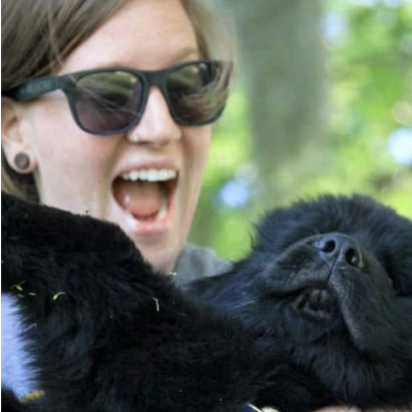
Expertise: Applied numerical modelling; Hazard assessment methods; Lava flow dynamics; Applied geophysics
My current research involves modelling hazards for use in community and stakeholder engagement. I employ a suite of numerical models in both scenario and probabilistic assessment workflows to achieve this. I am also actively working to better understand the dynamics of lava flow levee formation using remote sensing and geophysical observations.

Expertise: Volcano monitoring; volcano-seismology; volcano infrasound
My main research interests are focused on understanding the dynamics of volcanic activity (effusive and explosive) using volcano-seismic and infrasound techniques. I am also interested in opportunities for multi-disciplinary studies which integrate observational, geophysical, and experimental approaches. Overall, my investigations are motivated by how we can improve current volcano monitoring techniques and strategies.
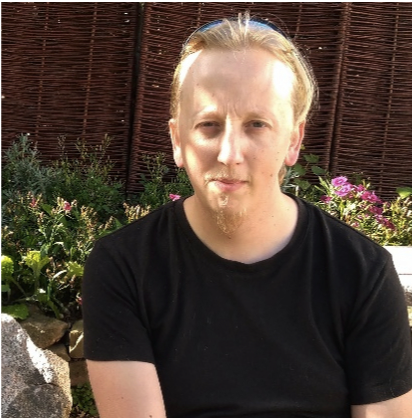
Expertise: Igneous petrology; Geochemistry; Volcanology
I am interested in understanding where magmas come from, how they change over time, and why they erupt in the way that they do. I enjoy combining multiple datasets (e.g. geochemistry, petrogenetic modelling, thermobarometry, quantitative textural analysis), to reconstruct magmatic plumbing systems. I am also interested in the application of virtual learning environments to support blended learning in geoscience education.

Expertise: Rheology; Lava flows, Petrology; Heat flow
Rheology and thermal properties of rocks and magmas. Physics and chemistry of magmatic processes on Earth and other planets. Integrated field and laboratory studies of effusive volcanism.
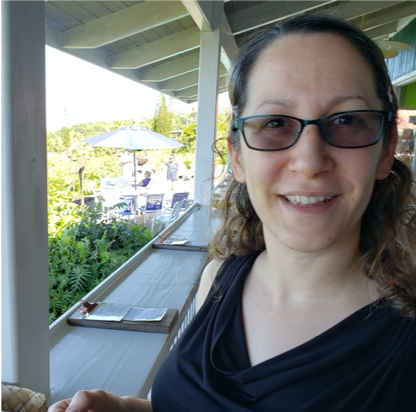
Expertise: Igneous petrogenesis; Radiogenic isotope geochemistry; Uranium-series isotope geochemistry; Magma transport
Isotope geochemist studying the isotopic makeup of igneous rocks to better understand their geologic origins. My research focuses on volcanic processes, mantle dynamics, and mantle-crust interactions and drivers at divergent boundaries, hotspots, and anomalous or poorly explained volcanic regions. My team uses a combination of isotope analytical methods and geochemical modeling to investigate questions in igneous petrogenesis, with a focus on mantle melting, mantle lithologic and geochemical heterogeneity, and magma transport dynamics.

Expertise: Magmatic timescales; Igneous petrology; Caldera-forming eruptions, Ocean island magmatism
I am an igneous petrologist and field volcanologist specialising in the use of in situ microanalytical techniques to yield insights into magmatic processes and their associated timescales at a variety of volcanic scales and magmatic compositions.
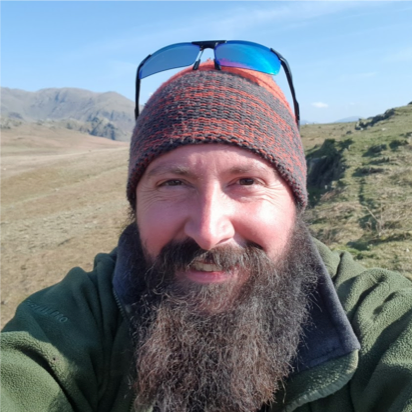
Expertise: Experimental modelling; Flow processes; Rock deformation; Volcano architecture
The central focus of my research is in modelling the flow and deposition processes in pyroclastic density currents, and the resulting bedforms and stratigraphies. I am also interested in the resulting strength of these deposits and architectures, and how they respond to loading and deformation. This feeds into processes like volcanoseismic generation during inflation, engineering of volcanic soils by local populations, and the stability of the edifice and its resilience to mass movements and flank collapse.

Expertise: Magma chamber dynamics; Magma fluid dynamics; Volcano modeling
My main research interest is the physics of magmatic processes at depth, within volcanic plumbing systems: how magmas ascend, pond, evolve and eventually erupt – or stall. I am also interested in the relationships and interactions between magmatic and hydrothermal systems, how do they exchange mass and energy. Finally, I try to relate these undeground dynamics to the geophysical and geochemical signals that can be observed at the Earth’s surface, in order to retrieve the causative links that originate specific observable patterns. To these aims, I employ physical and numerical modeling of complex multiphase and multicomponent systems, including their thermodynamics.

Expertise: Volcano geomorphology and landscape evolution; Volcanic debris avalanches; Volcano-tectonic-climate interactions; Analogue modelling
I use analogue modelling, photogrammetry, remote sensing, and GIS to study the geomorphology and landscape evolution of volcanoes and its vicinity. I am particularly curious about how tectonics and climate affect volcano development and vice versa. I am also interested in Earth surface processes, and I use the surface textures, internal structures, and geomorphology of debris avalanche and lahar deposits to understand their transport and emplacement mechanisms, which has implications for hazard assessment.
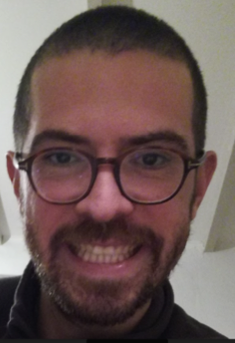
Expertise: Volcano-seismology; Acoustics; Hydrothermal systems; Volcanic lakes
My research seeks to understand magma hydrothermal systems (so-called ‘wet volcanoes’) and magma dynamics using multi-disciplinary approaches. I have been using and developing new methodologies to monitor and image volcanoes using seismic noise and earthquakes. I am also interested in volcano acoustics, from the low frequency rumbles in the atmosphere (infrasound) to the higher frequency vibrations in aquatic settings (hydroacoustic). I am always trying to transfer and develop tools freely available to the scientific community.

Expertise: Volcano-tectonics; Volcano deformation; Experimental Rock Deformation; Mechanics of calderas and magma chambers
I am interested in the sub-surface plumbing system of volcanoes and especially in modelling crustal stress and temperature fields and processes such as magma chamber formation/rupture, magma emplacement, caldera collapse and geothermal reservoir development. I commonly combine field, numerical modelling and experimental rock physics methods to address volcano-tectonic problems.

Expertise: Volatile degassing; Field measurements of volcanic emissions; Physical volcanology
My research interests range from the mechanisms that generate volcanic ash during explosive eruptions to the geochemical controls on the degassing of volatile gases and trace metals. I am particularly interested in developing new techniques for in-situ gas measurements in volcanic plumes at long-range using drone technology.
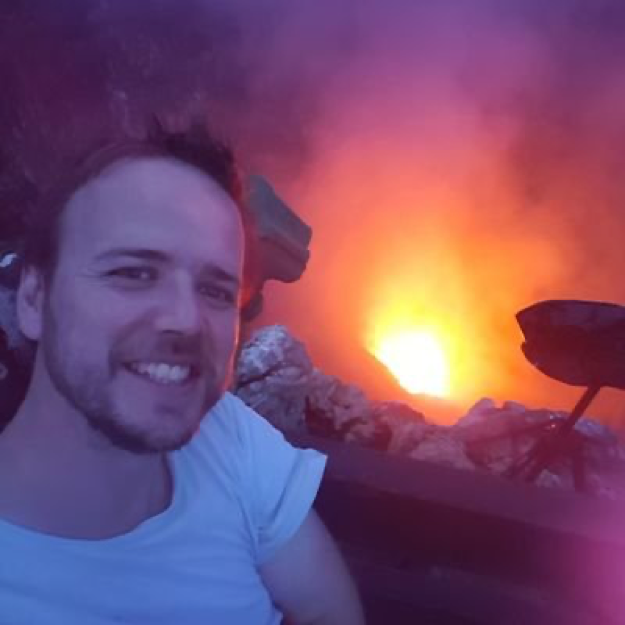
Expertise: Volcano Remote Sensing; Basaltic Volcanism; Analogue and Computational Modelling
My research revolves around the measurement of sulphur dioxide, using ultraviolet cameras, to probe our understanding of basaltic styles of activity. I have a particular interest in the transitions of activity to and away from strombolian volcanism. I am also interested in applying and developing low-cost alternatives to expensive remote sensing techniques.
Reports editors
Reports are a special kind of article, containing information and observations from volcano monitoring observatories, civil protection authorities, and related non-academic agencies. These may include topical research, but also reports of best-practice, volcanic risk reduction policies and amendments, trialled practice of evacuation procedures, and so on. Examples can be viewed here and here.
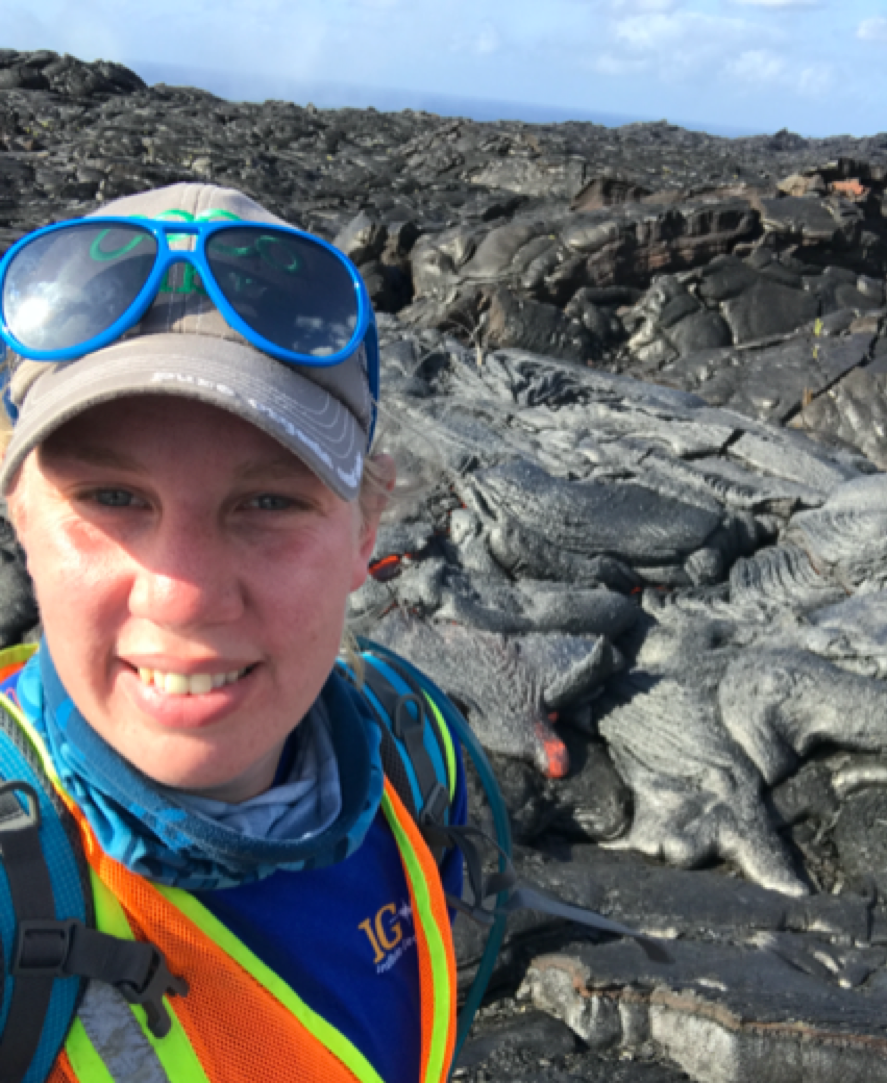
Expertise: Volcanology; Integrated geophysical-mechanical-petrological research; Magma permeability and outgassing processes; Volcano monitoring and hazard assessment; Reports editor.
My research interests focus on using an integrated, interdisciplinary approach to volcano science. I combine novel experimental rock physics techniques, petrological and textural studies and geophysical monitoring data to develop physical conduit models for the interpretation of magma outgassing processes and eruption dynamics. I am particularly interested in the application of this data and information to eruption monitoring, hazard assessment and, the development of new eruption forecasting methodologies.
Technical team
The technical editorial team is responsible for coordinating copy-editing and proofreading, typesetting manuscripts, and several other technical processes required both before and after an article's publication. In some cases, Technical editors (or TEXnicians) may also serve as Topical editors.
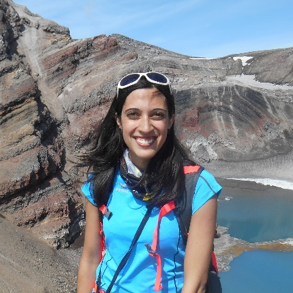
Expertise: Volcanic ash; Heterogeneous reactions (rock-fluid); Atmospheric impacts of volcanism
I am particularly interested in the reactivity of volcanic ash in the Earth system. My work involves using a range of experimental techniques to investigate ash-gas and ash-liquid interactions under various thermochemical conditions; for instance to understand the role of ash in the (bio)geochemical cycles of sulphur and iron and in glaciation of volcanic and meteorological clouds. I am also interested in using computer models to study the atmospheric and climate impacts of explosive eruptions.

Expertise: Volcanic stability; Mechanical properties of volcanic rock; Lava dome emplacement and collapse; Discrete element modelling
The crux of my research is establishing the physical and geomechanical properties of volcanic rock, and using these to create more realistic models of volcanic environments that are prone to instability, e.g. lava dome collapse, caldera formation. I am particularly interested in combining engineering geology with volcanology to find new ways of looking at large-scale volcanic collapse.
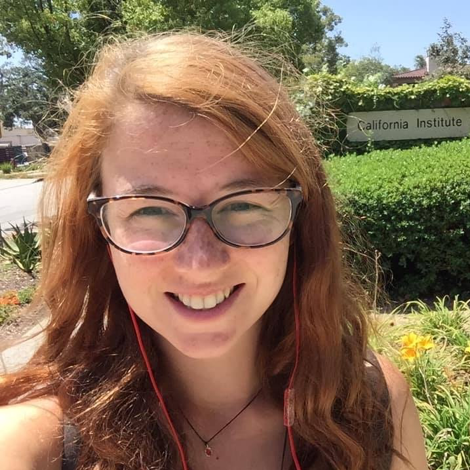
Expertise: Experimental petrology; Stable isotope geochemistry; Thermodynamic modelling; Volatiles
I use experiments, modelling, and natural samples to understand the behaviour of magmatic volatiles in igneous and atmospheric processes on Earth and other planetary bodies – at the moment particularly sulphur and its isotopes during degassing on Earth and Io! I use these techniques to investigate the influence of volatiles on eruption dynamics, how to interpret gas emission data for volcano monitoring, and model planetary-scale volatile cycling.

Expertise: Igneous petrology; Igneous geochemistry; Volcanology
I study the deposits of past eruptions from silicic calderas, in an attempt to understand their plumbing systems, the processes that control the growth of large, silicic magma reservoirs and the size of eruptions, and the timescales over which these processes operate.
Past members
Former members of the Volcanica team.

Editor from: 2017–2019

Editor from: 2017–2019
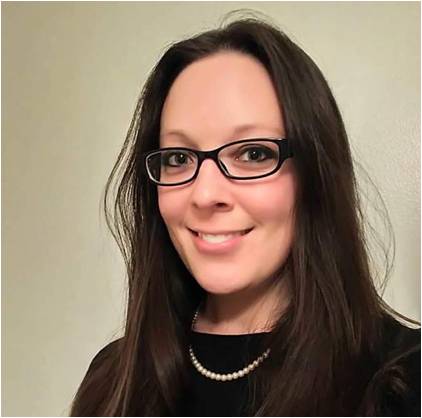
Editor from: 2017–2019

Editor from: 2017–2020

Editor from: 2017–2021

Editor from: 2020–2022

Editor from: 2020–2023

Editor from: 2017–2023
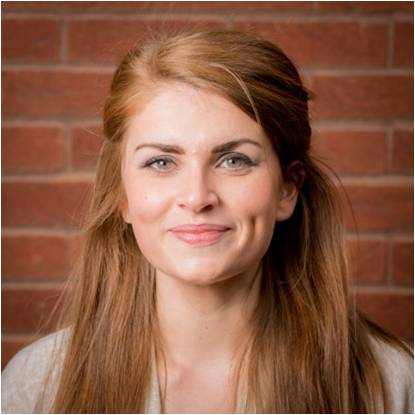
Social media and outreach: 2017–2018

Social media and outreach: 2017–2019
